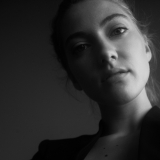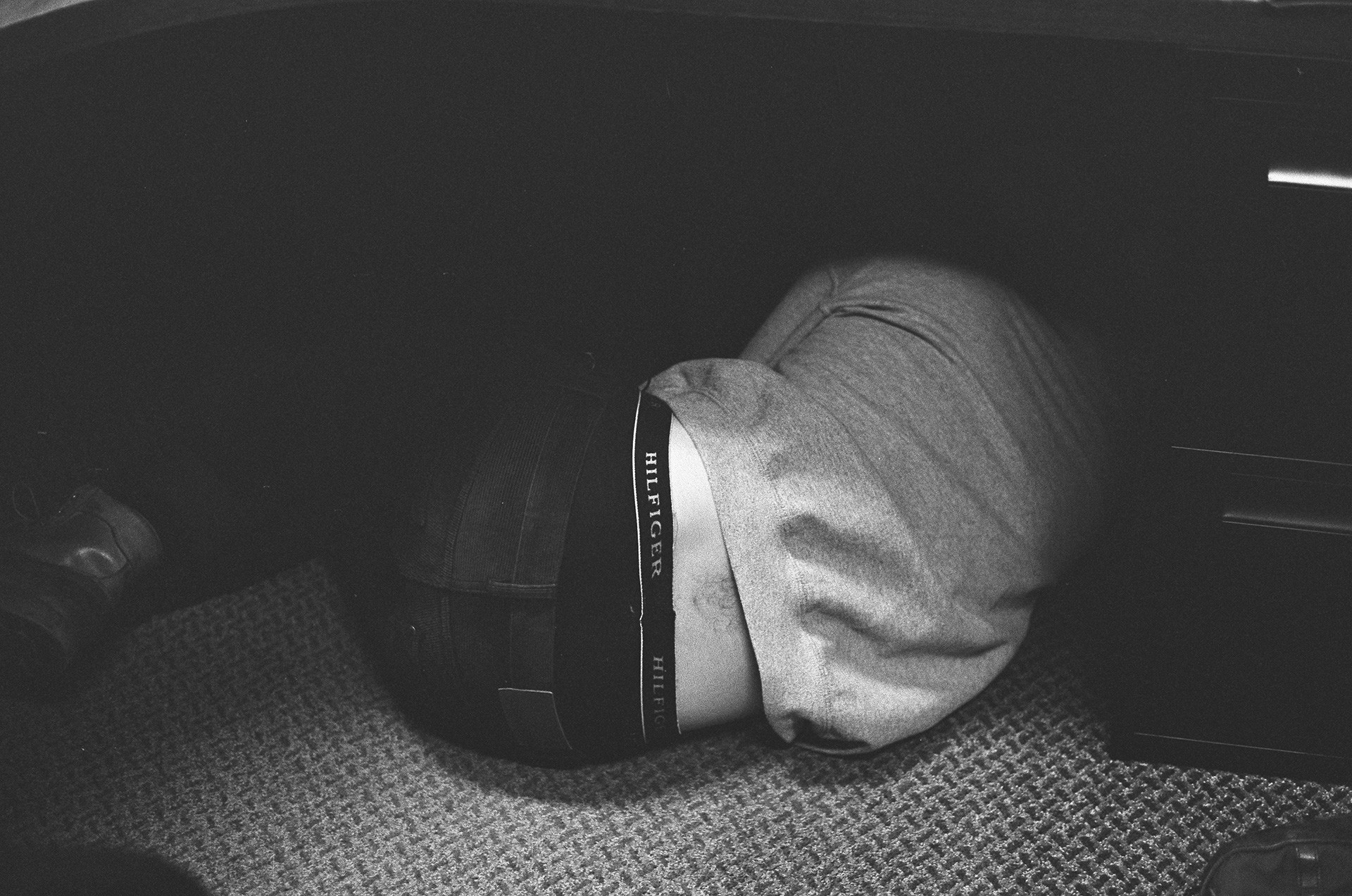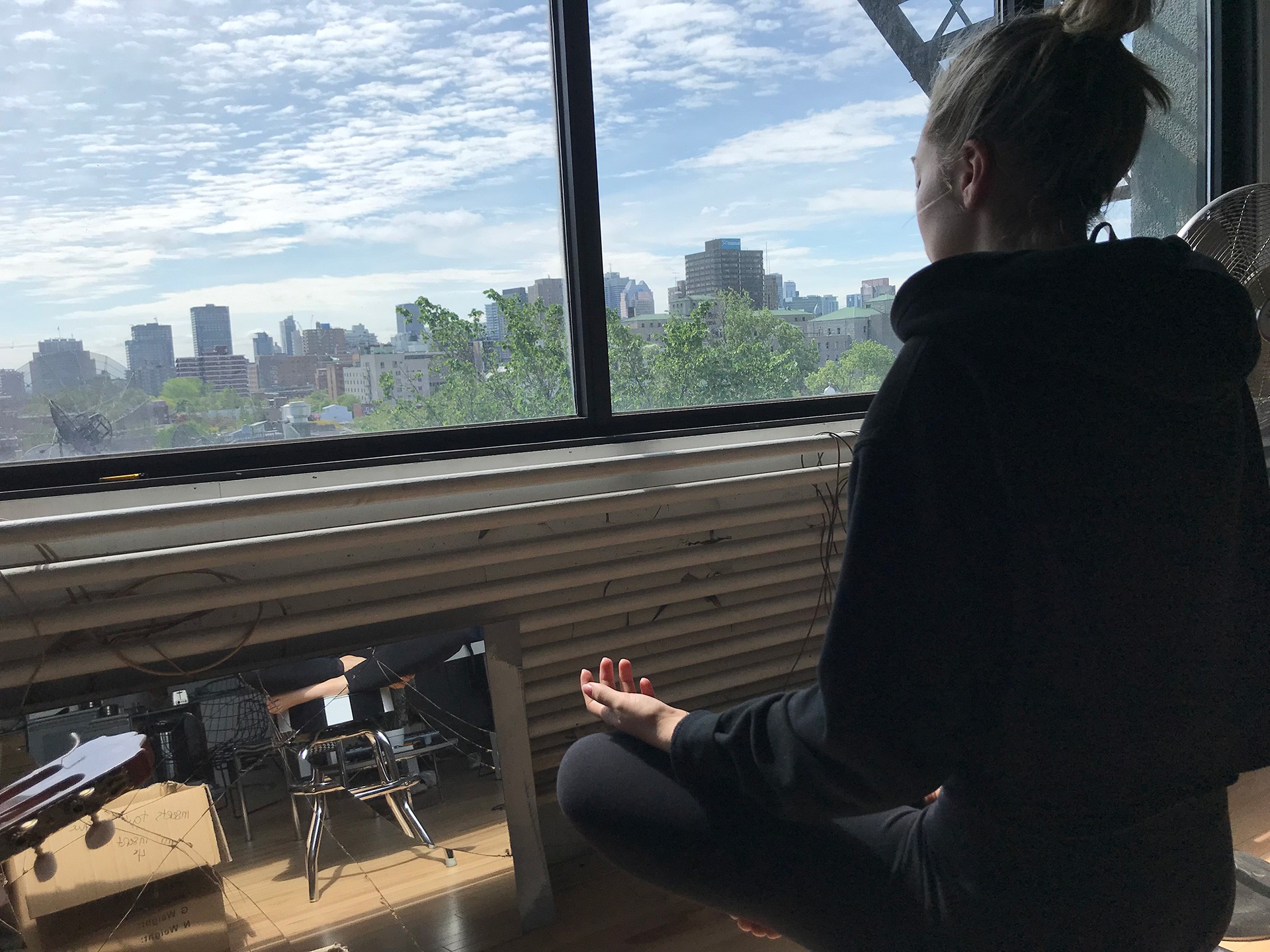
Emotional rest
He was a lead actor in Z.’s film. We went to CEGEP together. So when I was taking behind-the-scenes photos for the set, I went to look for him. During a little break, I found him sleeping under the desk. He was exhausted. They were working 12 to 14 hours a day. For him, it was not just physically tiring but also emotionally draining because his role required him to kiss another man, and he was not particularly comfortable with that. This photo represents how terrifying a set can be. It can force you to go places where you don’t always feel comfortable. That can be very stressful. He needed to rest and reground himself.
Having fun on a set
There is this force on a film set: we are all in this together and are going to get through it. You lose a sense of time because in this microcosmic society, you are always with the same group of people. You don’t think: “It’s 2 o’clock,” or “It’s 3 o’clock.” You are all like: “What’s the next shot?” It’ll be done when it is done. It’s gratifying when you feel your work is valued, and you work in an environment where you can do the best you can. You feel a good kind of tiredness. Like a child, you play outside all day and come home exhausted. But it was fun.
I really liked operating the camera on D.’s shoot. On this set, the director, the DOP, and myself [the camera operator] were all women. This women-led set had a very good vibe. Even if we were tired, I really felt that I was in my place.
Making films,
making a life
The question of mental health isn’t often discussed in school. [In cinema], there isn’t a blueprint guide on how to make [independent films]. You really need to figure it out on your own. It’s not like it was 20 or 30 years ago, when making films was more elitist and reserved for a small number of people. Now you can make your film with an iPhone. It’s become so competitive. You compare yourself with others who seem to always be doing more projects and are always productive. It can be overwhelming when you are just starting out and want to make films even if you are not really confident. That’s really stressful. I also feel that I’ve learned a lot about life in film school from making films. [This experience is] about learning what kind of story you want to tell and about balancing your own schedule. For my first film [before film school], I didn’t really ask myself many questions, I just went for it. In film school, your ideas are looked at through a microscope. You always have to defend, and defend to the point that you almost lose a certain instinctive confidence of going for it, even if every plot point isn’t perfectly figured out on paper. Also, starting university for me has been so much about being on my own for the first time, managing my budget, and managing so many other things. That’s why it’s important to have a healthy lifestyle. I practice guided meditation. In this photo, I was breathing. I always really loved that view and the light in the morning. It’s very calming. The broken mirror is like that old metaphor of the broken vase. You can assemble all the pieces back together, but there will still be cracks in it. A reflection of part of your life is completely cracked and shattered. But, in some ways, you are still there trying to make sense of it and trying to remember the big picture, the blue sky.



